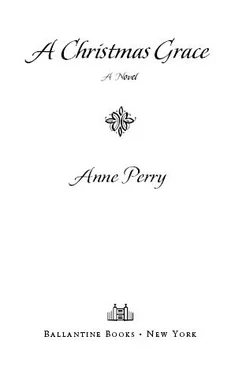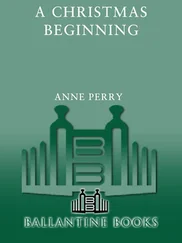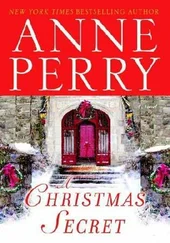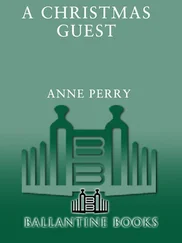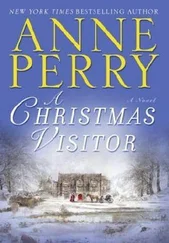“No…thank you,” she said quickly. “Someone from this village killed Connor. I’m safer alone, and if no one knows that I’ve gone. Please?”
Father Tyndale’s mouth pulled tight and his eyes were black and hurt, but he did not argue. He promised to have the pony and trap ready for her at nine in the morning. She said she would prefer to walk to his house than have him collect her.
She followed the road back to Susannah’s. It was now completely dark and she was glad of the lantern she had brought. The wind was hard and heavy, and colder.

S he set out in the morning after having gone briefly to say good-bye to Susannah. She had explained everything the previous evening, both where she was going and why, and that Daniel would be staying with Father Tyndale until she returned. She needed to give no reasons for that.
“I’ll come back as soon as I can,” she said, watching Susannah’s face to see in it the hope or the fear that she might not put into words. “Are you sure you want me to go?” she added impulsively. “I can change my mind, if you wish?”
Susannah looked pale, her face even more haggard, but there was no indecision in her. She smiled. “Please go. I’m not afraid of dying, only of leaving this unsolved. The village has been good to me, they’ve allowed me to belong as if I were really one of them. They’re Hugo’s people, and I loved him more than I can ever explain. I’m quite ready to die, and to go wherever he is. That is really the only place I want to be. But I want to leave them something for all the love they’ve given me, and even more for the way he loved them. I want to see them begin to heal. Go, Emily, and whatever you find, bring it back. See that it is known, whether I’m here or not. And never feel guilty. You’ve given me the greatest gift you had, and I’m grateful to you.”
Emily leaned forward and kissed her white cheek, then walked out of the room, tears running swift and easy down her face.
It was a long and bitterly cold journey, but Jenny seemed to know it even without Emily’s guidance, or Father Tyndale’s instructions. The landscape had a desolate beauty, which now in a strange way comforted her. Even in the occasional drifting rain there was a depth that changed with the light, as if there were layer beneath layer in the grass. The stones shone bright where a shaft of sun caught them, and the mountains and the distance were full of shifting, ever-changing shadows.
When at last she reached Galway, with a little inquiry she found a hotel with stabling for the pony, and after a good meal and a change into dry clothes and boots, she set out to retrace Hugo’s steps of seven years ago.
During the long drive she had given much thought to where Hugo would have begun looking for Connor’s family. Father Tyndale had said Hugo possessed a quiet but deep faith, and that he went to church most Sundays. Surely he would begin by asking the churches in Galway if they knew of Connor Riordan’s family? Whether they attended or not, the local priest would at least know of them?
It was easy to find a church; any passerby could direct her. It took a little longer to reach the one where the Riordan family was known, and it was after dark when she finally sat in the parlor of the rectory opposite Father Malahide and looked at his thin, gentle face in the candlelight. The room was filled with the earthy odor of peat, and the richness of tobacco smoke.
“How can I help you, Mrs. Radley?” he said curiously. He did not ask what an Englishwoman was doing in Galway, having driven alone, in the middle of winter, all the way from the coast.
Briefly Emily told him about the storm and Daniel being the only survivor from the wreck. As her story progressed she saw in his face that he knew about Connor, with both pity and grief.
“Now Mrs. Ross is very ill indeed,” she went on. “I think she will not live much longer. There are things I need to resolve before then. Daniel’s arrival has stirred old ghosts that need to be laid to rest, whatever the truth may be.”
“I cannot tell you what Hugo Ross said to me, Mrs. Radley,” Father Malahide told her gently. “He came to see if he could find Connor’s family. The young man was too weak to come himself and all his shipmates were dead. Like your present young man, he seemed to be alone in the world, and to remember very little. I’m afraid many men are lost off the coast of Ireland, especially Connemara. The winter is very bad, and the weather sweeps in off the Atlantic with nothing to break it.”
“Did Hugo find any family for him?”
“Yes. His mother lived here in Galway. She worked in a foundling home run by the Church. She cared for the children who had no one else. She was not a nun, of course, but she had been there most of her adult life. I’m afraid there is nothing else I can tell you, Mrs. Radley. All else was in confidence. I’m sure you understand that. I’m sorry to say it, but Connor’s mother is dead now. Not that I imagine she could have helped you.”
“No,” Emily agreed gravely. “I don’t know if I will learn the truth of what happened to him, and it would be of little comfort to her to know. But someone else at the foundling home may be able to tell me what Hugo Ross was asking and perhaps what he was told.”
“Of course.” Father Malahide gave her the address and how to find the place, counseling her to go in the middle of the morning, when they would be best able to spare time to speak with her.
She thanked him, and walked as briskly as she could through the dark streets back to the inn where she was lodging.
In the morning she followed Father Malahide’s directions and had no difficulty in finding the foundling home. It was a large, gray stone building with many additional outhouses, looking as if they had been adapted to be further accommodation.
Emily walked up to the front door and lifted the knocker. It was several minutes before it was answered by a slender little girl with a freckled face. Emily told her what she wished, and she was admitted to wait in a small, rather chilly anteroom with carefully stitched samplers on the wall, warning the would-be sinner that God sees all. Opposite it was a very large crucifix with a Christlike figure in agony. It made Emily self-conscious and uncomfortable. She felt suddenly alien, and wondered at her wisdom in having come here at all.
She was conducted to see the matron in charge, a tired woman with a pale face, deeply lined, and the most beautiful brown hair in thick coils on her head.
Emily sat in her office and heard the busy tap of feet up and down the corridor and voices calling out cheerfully, hurrying people along, bidding a child be good, be quick, tie up her bootlaces, tuck his shirt in, stop chattering.
“I came to Connemara to stay with my aunt, Susannah Ross, who is very ill and will not live much longer,” she began frankly. “Seven years ago her husband, Hugo Ross, came here looking for Mrs. Riordan, because her son, Connor, was the only survivor of a shipwreck just off the coast where Mr. Ross lived.”
“I remember him,” the matron said, nodding her head. “He never returned, nor did the young man he spoke of. I’m afraid Mrs. Riordan is dead now, God rest her soul.”
“Yes, I know. So is Mr. Ross. And I’m afraid Connor was killed too,” Emily replied.
“Oh dear.” The matron’s face showed genuine grief. “I’m so sorry. Perhaps it’s as well his poor mother never knew. She was so happy when Mr. Ross told her Connor was saved from the wreck. So many men are drowned. The sea’s a hard mistress, but you make a living where you can. The land can be hard too. So what is it I can do to help Mrs. Ross now, poor creature?”
Читать дальше
